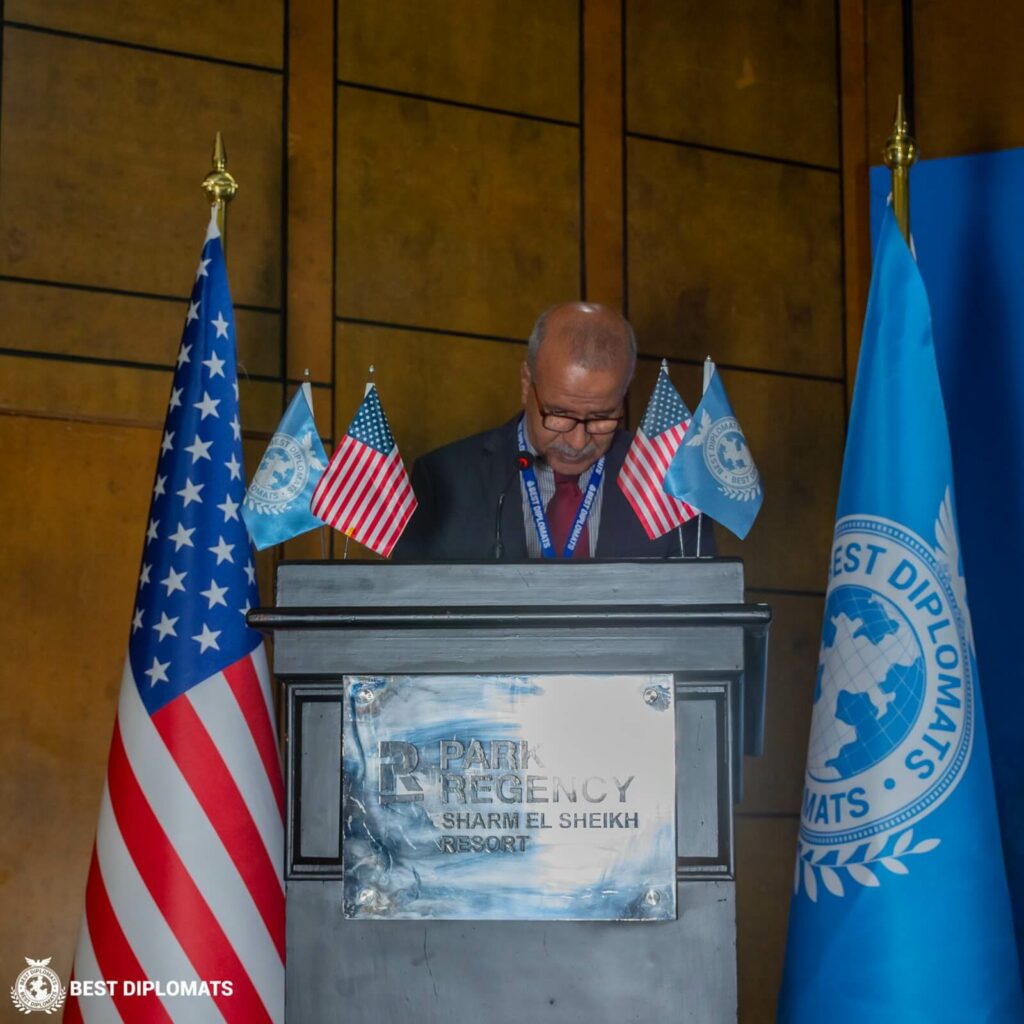Over the decades, there have been hundreds, nay, thousands of children who wanted to be great leaders in the future but failed to do so. This was not because they lacked the potential to become extraordinary. It was because society told them that they lacked the necessary skills. Society emphasizes too many overrated leadership attributes like confidence, engagement, and compassion and ends up shattering the dreams of many.
If you want to be an amazing leader in the future, you have to hone the skills you already possess and not fixate on overrated things, and sometimes, counterintuitive to good leadership. Here are 12 overrated leadership attributes that you need to let go of in 2023.
What are the 12 Most Overrated Leadership Attributes?
There are some attributes that you want to inculcate within yourself, but you do not really need to. These are overrated and do not benefit you in the long run. Here are 12 of the most overrated leadership attributes.
- Confidence
- Growth Mindset
- Engagement
- Authenticity
- Intuition
- Intelligence
- Loyalty
- Creativity
- Compassion
- Humility
- charisma
1. Confidence
When we think of good leadership, we often think of high confidence. We assume that in order to become a highly successful leader, you need to be very confident in everything you do. However, that is an overrated leadership attribute. Leaders, like other people, can also have doubts and reservations about the steps they take. The art is to not show their emotions on their face and create a facade of confidence.
If leaders can show that they have it under control even if they do not, they can build trust in leadership. They can convince their employees that they are reliable and can handle the difficulties arising in the future.
2. Growth Mindset
One of the biggest reasons why many leaders are unable to do good in society or commit to something long-term is because they are fixated on numbers. They want to see tangible growth, be it in the terms of revenue, GDP, or stock returns. However, this is where the Leader vs Bosses comparison come in. Bosses care about growth at the cost of everything else.
Leaders are different. They want to see their company grow, but not at the cost of their principles or their values. So growth mindset is usually good, but it becomes toxic the minute you care about growth more than you care about your employees or your ethics.
3. Engagement
When you are a worker working in a company, you need to engage with many people. This helps you grow and gain recognition. However, leaders don’t need to emphasize engagement. Leaders have a lot on their plate, and they don’t want to be worrying about engaging too much with their employees.
If they really want to create a suitable environment for their employees, they should try to create equitable policies and find ways to remove toxicity from the office environment.
4. Authenticity
It is good to be authentic, speak what is on your mind, and don’t create any facade for yourself. However, leaders can not always be honest with their employees. The cost is too high. Take the example of the head of Amnesty International or any other big organization.
It is quite possible that the leader is an overtly sensitive person who feels everything very deeply. Now, would it be wise for him to show this attribute to his employees? Certainly not. Leaders need to be careful when they are showing their truest selves to their employees because it may not work in their favor every time.
5. Intuition
One of the worst pieces of advice you can give a leader is to always trust their intuition. Although your gut feeling can lead you to the right way, it can also cause a lot of harm, not just for yourself, but also for your company. Leaders who don’t trust data, research, or market trends and chose to follow their gut end up making bad decisions. It is one of the biggest reasons why leaders fail in the status quo.
Rather than trusting your intuition blindly, try conducting extensive research and survey and following real data. Moreover, you can also follow the advice of your trusted partners. When people discuss something amongst themselves and come up with a solution, it often turns out to be error-free.
6. Intelligence
There is a lot of debate on whether intelligence is inherent or learned. Despite the answer, one thing is clear: not all leaders are intelligent. And truth be told, intelligence is often overrated. Some people may not have a very good IQ, but they have the skills and wisdom to rise in any given situation.
These are the people who are called ‘street smart’. Through experience and learning, they have developed enough that they don’t need test scores to define their personality. So if you are someone who is not very intelligent, don’t worry, you can still learn to be a great leader with Best Diplomats.
7. Loyalty
Loyalty is a positive attribute, but it is most certainly an overrated leadership attribute. Leaders are expected to show unwavering and undying loyalty towards the company they head. This requires them to put the needs of the company or the organization above their own personal happiness or personal life.

The above can have catastrophic consequences for the person in question. It can ruin their personal relationships and make them an outlaw in society. Moreover, in instances where the company’s ethics turn sour, leaders should not show loyalty to the said companies.
8. Creativity
There are some fields that require creativity. You need to spice up things every now and then if you want to keep the business going. However, creativity, as a general attribute, is often overrated. Many leaders don’t need to be creative, they just need to be skillful at what they do.
Businesses like Amazon, Facebook, and Google don’t necessarily need creative leaders. They want leaders who can keep the growth up, even if it means doing something very ordinary and mundane. So if you lack creativity, don’t be too afraid. You can still be a great leader without it.
9. Compassion
The new woke culture is harming businesses and how they are run. Leaders should be inclusive, kind, and compassionate, however, leaders don’t need to be compassionate all the time. Take the example of Sarah, an employer, who is undergoing some personal problems.
The leader of her company can give her concessions for a month or so, but he should not be expected to allow her to prioritize her problems for an indefinite time period. This may sound inhumane, but leaders have to sometimes take unfavorable and difficult decisions in order to keep the business running.
10. Curiosity
You will see a plethora of people suggesting that leaders need to be curious about the world. They even suggest that a non-curious person can never succeed as a leader. This is absolutely ridiculous. There are many people who have great insight into the world. They don’t really ponder over the deepest, most intricate details of the world.
However, these people are good at their jobs and know how to carry on the day-to-day operations of a business. Who is to say that they can not succeed at leading the company if they are not curious about the world?
11. Humility
One of the leadership attributes that is most commonly quoted as positive and desirable is humility. Leaders are expected to show humility and be likable among their employees or even their peers. Some humility is acceptable, however, leaders need to up their game if they want to stand out in the crowd.
Take the example of two leaders, Adam and Sarah. Adam and Sarah both possess the same number of leadership qualities. They are both skillful and extremely trained in their professions. However, Adam tries to induce respect and reverence in the hearts of his employees, whereas Sarah cares too much about being likable. In the long run, who do you think will come off as a more serious leader?
12. Charisma
For the longest time in history, the charismatic leadership style was the talk of the town. From the farmer to the businessman to the millionaire, everyone wanted to follow a leader who had charisma and could command an audience with ease. Most famous world leaders in history all had charisma. However, the time has changed now.
Due to the rise in awareness and social media presence, people can easily see through the facade of the leaders. They can tell when a leader is simply using their charisma to get ahead in the game, or when they have something worthwhile going on. This is why as an emerging leader, you should care less about charisma and more about developing skills.
Why Should You Not Fixate on Overrated Leadership Attributes?

The society we live in likes an all-or-none approach. This means that it will not like or support anyone that does not possess all the attributes associated with leadership. However, what society thinks and does not think of you should not stop you from doing your best.
If you think you have the right skill set and the willingness to go out there and explore yourself, you should do it, regardless of what anyone thinks of you. Fixating overrated leadership attributes is counterintuitive to your future. Here are some reasons why you should not fixate on overrated leadership attributes.
1. It kills your willingness to go out there and explore different opportunities.
2. It compels you to focus too much on a couple of attributes while ignoring all the rest.
3. It stops you from achieving your full potential because you are always worrying about what you lack.
4. It makes you lose confidence because you don’t believe you have what it takes to be a great leader.
5. It makes you unreliable in the eyes of others because unless you trust in yourself, no one else will.
What Are the Best Leadership Attributes to Inculcate in Your Life

1. A Never-Stop Learning Attitude
No matter how much you have been trained or how many skills you have acquired, there is no limit to learning. If you want to be the best version of yourself, you got to get down from your high horse and be as open to learning as possible.
One of the best ways to learn new things is by traveling and exploring the world out there. You can travel the world, new people, and gain new experiences. All this adds to your personality and widens your perspective of the world. Additionally, you can meet new and diverse people. This will surely help make you a more inclusive leader.
2. The Ability to Adjust in Any Circumstance
Unless you are working in an imaginary world, you will never have the same social surroundings. As leaders, you will be expected to tackle a diverse number of challenges that come your way. The best test of this ability came during the recent COVID-19 pandemic when the entire world entered into a chaotic phase.
During this time, only the leaders that were adaptable and knew how to make a situation better survived. The ones who were too comfortable in their positions failed miserably. This is why leaders should prepare themselves for the worst of situations. This is the only way they can better tackle the challenges that they face in the future.
3. Kindness and Humility
As we have mentioned above, too much compassion and empathy can be counterintuitive for you. It can hinder your work and make your co-workers trick you easily. However, kindness and humility are two of the most exemplary traits of leadership that you need to inculcate within yourself.
Kindness towards your employees and your help staff will make you popular among them. Additionally, it will help reduce toxicity in the workplace. Humility, on the other hand, keeps you grounded and does not let your power get to your head.
4. Knowing When to Surrender
Resilience and hard work go a long way, especially if you are an emerging leader who has to make their mark in the industry. However, one of the biggest mistakes that leaders do is to keep going when the loss is inevitable.
Take the example of Adolf Hitler. After conquering much of Europe, he wanted to advance further ahead and conquer the remaining countries. However, his greed got the better of him. He lost and died an unimaginable death. Leaders should learn from their mistakes and should put limits on how far they are willing to go in pursuit of a goal.
5. Inclusive and Diverse Leadership
It is great to have a style and stick to it as long as it is getting you the right results. However, being fixated on your style and not knowing when to change strategy is one of the biggest reasons why leaders fail. A diverse leadership style can look like a leader experimenting with both charismatic and transformational leadership styles and then sticking to the one most appropriate for a situation.
An inclusive leadership style entails that a leader is willing to not just hire, but also give leadership positions to a diverse group of people from within the mix. Having equitable policies without any real equitable environment serves the interest of no one.
Learn to Be an Extraordinary Leader With the Best Diplomats
Whether you have one leadership attribute or none at all, it does not matter. In order to become an extraordinary leader, you got to have the right mindset. Rather than chasing after the overrated leadership attributes and finding ways to inculcate them in your personality, learn to rise above them.

With the right training at Best Diplomats, you can break the shackles society has set for you. You can learn how to hone the skills you possess and become the best version of yourself. Best Diplomats teaches you public speaking skills, advocacy, and most importantly, the courage to stand up for yourself.
Conclusion
Most people want to be great leaders. They even have all the right attributes necessary to make their mark in the world. However, they often resist trying because society keeps telling them that they don’t have it all. Society emphasizes too much-overrated leadership attributes like compassion, intelligence, and curiosity. While doing this, it ignores the gems who have amazing leadership potential.
So if you have that spark within you, don’t let the world define your limits. Go out there and be the best version of yourself.
FAQs
Which is not the quality of good Leadership?
One attribute that is a dealbreaker when it comes to good leadership is poor communication skills. Good leaders have the excellent listening ability, and they can communicate with ease. They are also able to communicate their ideas, their values, and their expectations to others without going into a frenzy. Their ability to articulate their ideas well helps them gain trust in leadership.
Why Is Good Leadership Difficult?
Everyone wants to be a great leader, but very few people understand the pressure of being a good leader. With leadership comes the unrealistic expectations of both your bosses and your employees. You have to pave a very difficult path that is filled with hurdles and difficulties. Additionally, you have to set aside most of your personal life and focus entirely on proving yourself as an exceptional leader
What Are 4 Poor Leadership Qualities?
There are many traits that are associated with bad and poor leadership. These are different from the overrated leadership attributes, as the latter is necessary and useful when done in proportion. Here are some common traits of bad leadership.
• Poor time management and delegation of tasks
• Inability to resolve conflicts among employees
• Lack of an inclusive and welcoming environment
• Poor Strategic thinking.






